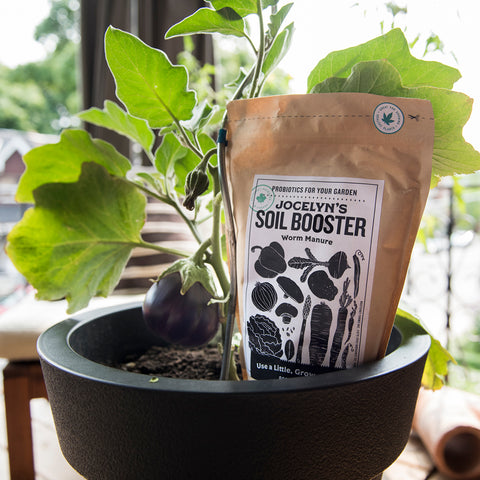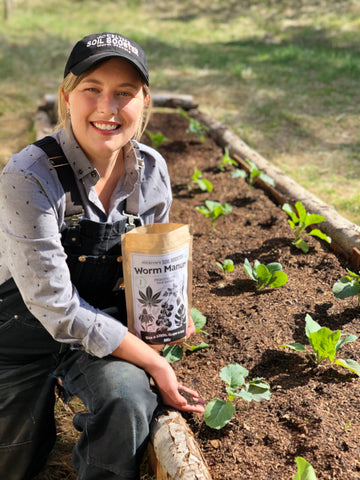Why Use Probiotics for Plants?
Why did we add Probiotics for Plants to our Worm Manure label?
In short, we wanted to easily describe the mechanism of action by which our worm manure plant food so effectively grows healthy, thriving plants. The Oxford dictionary defines the word probiotic as “a microorganism introduced into the body for its beneficial qualities”. We are expanding this definition to include “a microorganism introduced into the soil for its beneficial qualities”.
The probiotics market has grown significantly and it is now common to see this term in reference to a variety of products, including foods like yoghurt and sauerkraut, health supplements, and even skin care and shampoo.
It seems like everyone is talking probiotics these days. Why? Recent science has demonstrated the importance of microbial life to our digestive systems, and to our entire body. In the same way, science is showing that microbes in the soil are equally as important for plants.
Healthy biology is key for life, both in our bodies and in the soil.
The soil provides functions to a plant that are similar to the way that our digestive system provides important functions for our body; both utilize microbes to extract nutrients. Just like in the gut, a wider diversity of microbial life in the soil will be better equipped to extract all the available nutrients.
But microbes do more than extract nutrients! They also play a vital role in maintaining good health by supporting your immune system. Microbes in the soil perform similar services, creating antibacterial and anti-fungal agents that ward off pests and pathogens.
Probiotics are different from prebiotics. The Oxford dictionary defines prebiotics as "A non-digestible food ingredient that promotes the growth of beneficial microorganisms in the intestines." Most soil is full of prebiotics but missing the biology to access these nutrients, therefore adding a Probiotic for Plants is the solution.
Probiotics are considered “functional foods”, so I’m introducing the term “functional soil”. Our Probiotics for Plants Worm Manure is a functional soil because it provides value to the plant beyond the nutritional qualities; the primary value is in the microbiology that inoculates the soil so that any biology that was missing has the opportunity to reestablish itself. The plant will feed the microbiology with carbon sugars known as root exudates. These roots exudates are specifically formulated to promote the microbe populations the plant needs.
Problems result if the required microbial variety isn’t present in the soil. Despite the plant’s best efforts, if the specific strain of microorganism needed isn’t present, the plant cannot get what it needs. Greater biological diversity in soil leads to healthier plants, as there is a greater likelihood the right probiotic will be available when needed.
Jocelyn’s Soil Booster Probiotics for Plants Worm Manure inoculates the soil with a diversity of microbial life, so that plants have access to all the biology they need to flourish and thrive.



